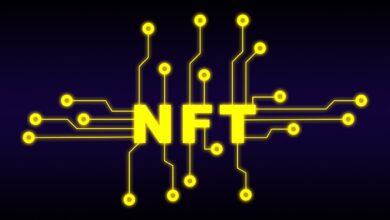Unlocking the Secrets of Privacy Coins

The digital landscape has witnessed an unprecedented evolution, giving rise to a new class of cryptocurrencies designed with an intrinsic focus on privacy. As we embark on the journey of comprehending privacy coins, it is essential to explore their distinct attributes and the exclusive security mechanisms that underpin their existence. These cryptocurrencies are not merely financial instruments; they represent a profound shift in how we perceive personal data and the boundaries of confidentiality in an increasingly interconnected world.
At the heart of this exploration lies the understanding of how anonymity is woven into the very fabric of these currencies. By delving into the core features that define privacy coins, we uncover a tapestry of protective measures that differentiate them from their more transparent counterparts. Each coin embodies a unique set of safety protocols aimed at shielding user identities and transactions from prying eyes, thus fostering an environment where financial freedom can flourish unencumbered by surveillance.
As we grasp the complexities surrounding anonymous cryptocurrencies, it becomes clear that their special protective features are not merely technical novelties but rather essential attributes for individuals seeking autonomy in their financial dealings. In this article, we will meticulously dissect these mechanisms, revealing how they contribute to a secure and private transaction environment, and why they are indispensable in our modern economic ecosystem. Join me as we embark on this enlightening expedition into the realm of privacy coins, where understanding becomes not just a pursuit but a necessity for anyone navigating the intricate world of digital finance.
Understanding Privacy Coins and Their Unique Security Features
In the evolving landscape of cryptocurrencies, privacy coins have emerged as a distinct category, characterized by their focus on anonymity and confidentiality. Unlike traditional cryptocurrencies, which often feature transparent transaction histories, privacy coins employ sophisticated mechanisms designed to obscure users’ identities and transaction details. This unique attribute is particularly appealing to those who prioritize privacy in their financial dealings. As we delve into the realm of privacy coins, it becomes essential to grasp their security features and understand how they differ from more conventional digital currencies.
One of the primary aspects that set privacy coins apart is their use of advanced cryptographic techniques. For instance, technologies such as ring signatures, zero-knowledge proofs, and stealth addresses are integral to the functionality of these cryptocurrencies. By employing these special mechanisms, privacy coins effectively enhance user anonymity while maintaining the integrity of transactions. This intricate interplay of technology ensures that transactions remain confidential and untraceable to external observers, thus providing users with a sense of security that is often lacking in standard blockchain systems.
Exploring the various types of privacy coins reveals a diverse ecosystem, each with its own unique attributes and protective features. Monero (XMR), for example, is renowned for its robust implementation of ring signatures and stealth addresses, which obfuscate transaction sources and destinations. Zcash (ZEC), on the other hand, employs zero-knowledge proofs to allow users to choose between transparent and shielded transactions. This flexibility caters to both privacy-conscious individuals and those who may prefer greater transparency in specific contexts, illustrating the adaptability of these anonymous cryptocurrencies.
As we comprehend the implications of using privacy coins, it is crucial to recognize the potential risks associated with their adoption. While these cryptocurrencies provide enhanced safety and anonymity for legitimate users, they have also attracted scrutiny due to their association with illicit activities. The exclusive nature of their protective features can create an environment where malicious actors operate under the radar. Regulatory bodies around the world are increasingly examining the use of privacy coins, seeking to balance user privacy with the need for compliance in combating money laundering and other financial crimes.
Another notable aspect of privacy coins is their role in fostering financial sovereignty. In regions where governmental oversight is stringent or where individuals face economic instability, these cryptocurrencies offer a means of preserving personal wealth without interference. By utilizing the special attributes inherent in privacy coins, users can safeguard their assets from potential seizure or devaluation by external forces. This empowerment through anonymity fosters a deeper understanding of personal finance in the digital age.
In conclusion, grasping the nuances of privacy coins necessitates an appreciation for their unique security attributes and mechanisms. As we continue to explore this fascinating segment of the cryptocurrency market, it becomes evident that these digital assets serve not only as a means of financial exchange but also as tools for personal autonomy and protection against invasive surveillance. By comprehensively examining their features and implications, we can better navigate the complex interplay between privacy, security, and regulation in an ever-evolving technological landscape.
Understanding Privacy Coins and Their Unique Security Features
Privacy coins represent a fascinating subset of the cryptocurrency ecosystem, designed specifically to enhance user anonymity and confidentiality. Unlike traditional cryptocurrencies such as Bitcoin, which although pseudonymous, can often be traced back to individuals through various means, privacy coins employ sophisticated mechanisms to obscure user identities and transaction details. This distinct characteristic makes them appealing to those who prioritize privacy in their financial transactions, whether for personal security or simply a preference for discretion.
Grasping the concept of privacy coins requires an understanding of the unique attributes that set them apart from their more transparent counterparts. These cryptocurrencies utilize advanced cryptographic techniques to ensure that transaction data remains confidential. For instance, Monero employs ring signatures and stealth addresses, making it exceedingly difficult to link transactions together or identify involved parties. Similarly, Zcash offers users the ability to conduct shielded transactions using zero-knowledge proofs, allowing for verification of transactions without revealing any underlying information about the sender or recipient.
Exploring the landscape of confidential coins reveals a plethora of options, each with its own exclusive safety mechanisms tailored to protect user privacy. Dash, for example, integrates a feature known as PrivateSend which mixes coins among users to obfuscate transaction histories. This mixing process creates a layer of complexity that further complicates efforts to trace funds back to any one individual. Such mechanisms not only bolster user anonymity but also contribute to an evolving conversation about digital privacy in an increasingly connected world.
Comprehending how anonymous cryptocurrencies operate involves delving into the various protective features they offer. For instance, many privacy coins are built on decentralized networks, which inherently provide a degree of resilience against censorship and surveillance. This decentralization is key; it ensures that no single entity has control over the network or its users’ data. Furthermore, the incorporation of technologies such as Tor or I2P can enhance anonymity even further by routing user connections through multiple nodes before reaching their final destination.
The implications of utilizing privacy coins extend beyond mere individual preference; they raise critical questions about regulation and compliance in the cryptocurrency market. As governments and regulatory bodies grapple with how to address potential misuse of these assets–such as money laundering or tax evasion–the unique security attributes of privacy coins become a focal point in discussions around their future. The challenge lies in balancing the right to privacy with the need for accountability within financial systems.
In conclusion, the realm of privacy coins represents a complex interplay between technological innovation and ethical considerations surrounding financial transparency. As we continue to witness the evolution of cryptocurrencies and their adoption across various sectors, understanding the distinct mechanisms that underpin these anonymous and confidential currencies will be essential. The ongoing exploration into their safety features will not only inform users but also guide policymakers as they navigate this dynamic landscape where privacy meets accountability.
Unique Security Features of Privacy Coins
In the rapidly evolving landscape of cryptocurrencies, privacy coins stand out due to their distinct security attributes. These digital currencies, such as Monero, Zcash, and Dash, incorporate advanced mechanisms to ensure confidentiality and anonymity for their users. Unlike Bitcoin and other public blockchain platforms where transaction details are openly accessible, these coins utilize specialized technologies that obscure transaction information, thereby enhancing user privacy. The exploration of these unique safety features reveals how privacy coins serve those who prioritize discretion in their financial dealings.
One of the pivotal mechanisms employed by privacy coins is ring signatures, primarily used by Monero. This method allows a group of signers to validate transactions without revealing the specific signer among them. Consequently, this creates a protective barrier against tracing efforts while maintaining the integrity of the transaction. Furthermore, confidential transactions, as seen in Zcash, utilize zero-knowledge proofs (zk-SNARKs) to ensure that transaction amounts and sender/receiver identities remain hidden from public view. Such exclusive safety mechanisms illustrate the innovative approaches taken by privacy-focused cryptocurrencies to safeguard user data.
Comprehending the intricacies of these technologies is essential for grasping the broader implications of privacy coins in the cryptocurrency market. The ability to conduct anonymous transactions not only protects individual users but also poses challenges for regulatory frameworks aiming to curb illicit activities associated with digital currencies. As governments and financial institutions grapple with these innovations, the balance between user privacy and regulatory compliance becomes increasingly complex. This dynamic necessitates a thorough understanding of how distinct security attributes function within the context of both individual freedom and societal responsibility.
Ultimately, the rise of confidential cryptocurrencies underscores an evolving dialogue about privacy in the digital age. As more individuals recognize the importance of preserving their financial anonymity, exploring these unique safety features becomes paramount. By analyzing various mechanisms employed by privacy coins, one can appreciate how they cater to the growing demand for enhanced security while navigating the delicate interplay between innovation and regulation in the world of cryptocurrencies.
Conclusion: Embracing the World of Privacy Coins
As we journeyed through the intricate landscape of privacy coins, we encountered a myriad of fascinating concepts that underscore their essential role in modern finance. These confidential cryptocurrencies, equipped with their exclusive security mechanisms, offer users a unique opportunity to navigate the digital economy while protecting their personal information. The distinct features of these coins are not merely an afterthought; they represent a fundamental shift towards a more secure and private means of transacting online.
In our exploration, we grasped the significance of understanding the safety attributes that privacy coins provide. From advanced cryptographic techniques to innovative protocols like zero-knowledge proofs, these protective features ensure that user anonymity is not just a promise but a reality. As individuals become increasingly aware of their digital footprint, the allure of privacy coins grows stronger, highlighting the need for comprehensive comprehension of their special security attributes.
Key Takeaways
- Privacy and Security: The core benefits of using privacy coins lie in their ability to maintain confidentiality while providing robust security against potential threats.
- Distinct Mechanisms: Each cryptocurrency in this realm employs unique mechanisms that cater to specific privacy needs, ensuring users can choose what fits them best.
- Exploring Their Features: By delving deeper into how these coins function, one can appreciate the elegance and sophistication behind their design.
- Comprehending the Landscape: Understanding the broader implications of adopting privacy-centric cryptocurrencies is vital for making informed decisions in an ever-evolving market.
In summary, as we embrace the future of finance through these innovative tools, let us remain vigilant and inquisitive. The world of privacy coins beckons us to explore its depths with an open mind and a discerning eye. It is not just about trading or investing; it is about safeguarding our identities in a digital age where every click may leave a trace. With each transaction made through these confidential cryptocurrencies, we affirm our commitment to autonomy and security–principles that should resonate deeply within each one of us.





